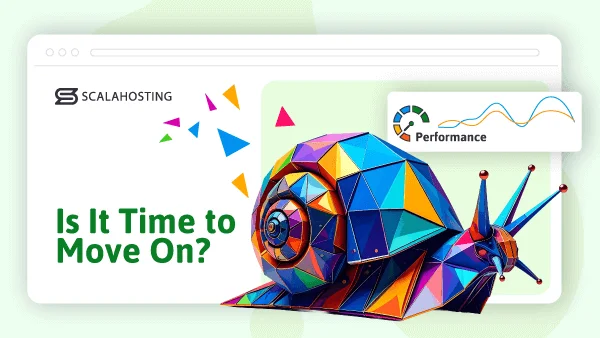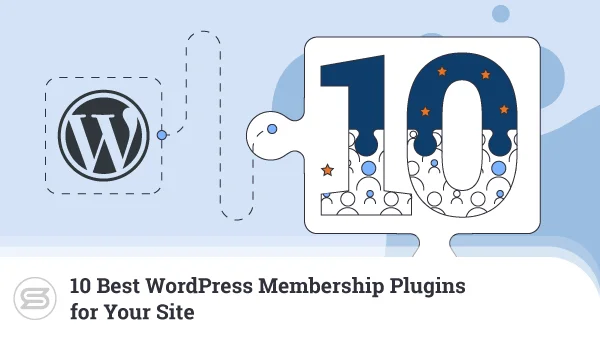The Ultimate SEO Checklist for WordPress
Many people use WordPress because it’s extremely intuitive and beginner-friendly. But those of you who have more experience with the world’s most popular CMS know that those are far from the only advantages. The SEO-friendly architecture allows WP users to not only build a great website but easily promote it as well.
To get the best of WordPress, we need a carefully outlined SEO strategy, and this is our exact mission today…
What is WordPress?
For many, WordPress needs no introduction. It’s a blogging platform launched in 2003 and has grown to become by far the biggest Content Management System in the world. To wrap your head around how popular WordPress actually is, you can consider this – according to the official counter, on average, WordPress is downloaded more than 1 million times a day.
It may have started as a simple blogging app. Over the years, WordPress has been reshaped and adapted to create online stores, business and government websites, and even social networks and community portals.
Its ubiquity is in no small part due to the incredibly active global community that powers and supports it. Thousands of experts have devoted their careers to the CMS, which means that you can tap into a virtually endless pool of themes, plugins, extensions, as well as valuable resources like articles, tutorials, and courses.
All in all, if you have little or no experience launching and running a website, WordPress is a perfect platform for you.
Why Is SEO Important for WordPress?
Whether you’re building an ecommerce site or a personal blog, your project won’t survive unless it attracts sufficient traffic. There are more than a few ways of drawing attention, but you won’t find a more efficient solution than search engines.
However, with more than 1.8 billion websites worldwide, there’s no shortage of projects fighting for a better position on the results page. Even if your idea is relatively niche and your direct competition isn’t that fierce, you still need to put your page in front of your audience.
More often than not, utilizing the power of Google is without an alternative.
SEO is a complex undertaking, and a lot of website owners feel a bit intimidated by it. The truth is, if you know what you’re doing, you should have no problems boosting your site’s search engine rankings.
How to Improve your WordPress SEO
To improve your WordPress site SEO, you need to know which problems affect your search engine rankings the most. This will allow you to draw a plan on how to fix them. Here are the most important things to consider:
Choose a reliable hosting provider
Many things determine your site’s search engine rankings, and your hosting provider is responsible for most of them. You need a stable environment where your website loads quickly, is up at all times, and well-protected from cyberattacks.
If any one of these requirements is not met, you’re probably better off looking for a different provider.
Loading speeds have been considered a significant part of a site’s SEO performance for years. A high-quality hosting service may not be the only prerequisite for optimal performance but undoubtedly one of the most essential. Make sure the hosting environment allows your site to perform at its best.
The project’s security is also crucial for your SEO success. A single harmful attack can trigger a Google Safe Browser warning and ruin your rankings in the long-term. Even if you fix the security hole and kick the hackers out, regaining the lost positions will be difficult.
Uptime is also something you need to think about. If your site is frequently inaccessible, visitors will naturally stop coming back. What’s more, search engines could decide that the project is dormant and stop indexing it altogether. If this happens, the damages could be irreparable.
That’s why finding a hosting provider that combines all the above aspects should be your first step when building a WordPress website.
Integrate Google Analytics
Before you start improving your website SEO, you need to first check its current state. This is where Google Analytics comes in.
GA is by far the most popular platform of its kind, giving you a ton of valuable insights about what sort of people visit your website and how they interact with it. Google Analytics plays a key role in keyword research and helps you determine what is popular in your niche and the right phrases to target.
You can use GA for free, and the only thing you need to do to integrate it into your WordPress site is paste a code snippet on specific pages. You can insert the tracking code directly into your theme’s header.php file or simply use a plugin like MonsterInsights, which helps you read analytics data straight from the WP dashboard.
WordPress performance tips
You can do many things to improve your site’s loading speeds, and an excellent place to start would be to ensure your WP installation is as clean as possible.
Then come the add-ons.
Every WordPress site relies on plugins and themes for its design and functionality. But because there’s such a wide variety of add-ons, it’s easy for webmasters to go overboard. The more plugins and templates there are – the more requests the server needs to process. This inevitably slows down the loading times and negatively affects your performance.
Have a good look around the list of installed add-ons and check for any unused plugins. Delete them. Anything that you might have installed because you needed it at some point in the past must go.
WordPress doesn’t have an internal cache system, so you need to rely on third-party plugins for that. Fortunately, some of the available options come are pretty lightweight and easy-to-operate even by complete beginners.
Check if your hosting provider offers some Content Delivery Network (CDN) solution. Utilizing a CDN, some of your content will be distributed across a global network of servers, and when a visitor requests it – the system serves it from the closest geographical location.
Sitemap and robots.txt
The XML sitemap and the robots.txt file are essential for efficiently managing the search engine bots that index your website.
However, before you go on, you need to make sure WordPress doesn’t restrict them altogether. In your WP dashboard, go to Settings > Reading, look for the checkbox that says Discourage search engines from indexing this site. If checked – disable it and click Save Settings.
Utilizing a sitemap, you can have your pages indexed quicker by effectively giving search engine bots a list of URLs to crawl. Many WordPress plugins offer sitemap creation as part of their functionality, and so do many free and premium web-based online tools.
To speed up the indexing process even further, submit the sitemap through Google’s Search Console, and if you want to ensure new content is timely indexed – update the sitemap frequently.
More often than not, there are certain parts of your website you don’t want to see in the Google search results. This is why you have the robots.txt file. Located in your site’s root folder, it restricts search engine crawlers from visiting some pages and sections of your website.
If the file isn’t generated automatically, you can use your operating system’s text editor to create it. Google offers a helpful guide on the syntax you need to use.
URL optimization
The first thing people associate with the concept of URL optimization is the age-old WWW vs non-WWW debate. In 2021, that won’t actually make any difference on your SEO, so using www or not is mostly a matter of preference.
Remember to pick one option and stick with it, though.
All your WordPress site links must display the correct resources, which is why we have 301 redirects. With other website-building applications, setting proper redirects between www and non-www links involves either fiddling with your host’s control panel settings or editing the .htaccess file. However, if you use WordPress, it’s as simple as entering the correct URL in the WordPress Address and Site Address fields in the Settings > General section of the WP dashboard.
After you’ve determined the prefix of your domain, you need to optimize its permalink structure. By default, the URL of every new WordPress page or post looks something like this:
http://yourdomain.com/?p=216
The search engine might index the page, but the URL doesn’t carry any information about its contents. This is why it’s less likely to appear in relevant results for valuable keywords.
Fortunately, WordPress gives you an easy way of changing the permalink structure through the Settings > Permalinks section of your WP dashboard. Most people pick Post Name, which makes URLs look like this:
http://yourdomain.com/your-article-name
You can include other details in the URL like the date of publishing (useful for news sites) or category (preferred by ecommerce sites).
You can also change post and page permalinks before publishing. It’s a good idea to remove any stop words. This won’t help you climb up the search engine results page per se, but keeping the URLs short and clear increases the chances of users clicking on them.
Meta titles and descriptions
Having your pages indexed in Google is only the tip of the SEO iceberg. You now need to make sure people actually click on them, and your meta titles and descriptions are the best way to do it.
The meta title is the heading of every search engine result, while the meta description is the snippet of text directly below it. You can add such metadata easily with the help of a plugin.
The tricky part is figuring out how to best utilize it.
Different search engines have different standards for the length of meta titles and descriptions. According to most Google experts, titles are ideally under 60 characters, while the optimal length for the descriptions is around 155 characters.
Make sure you write your metadata for the people rather than search engine bots. Use keywords wisely, and make sure you clearly get across what the page is about.
Headings
Back in the days, the success of any SEO strategy heavily depended on keyword density, but Google learned its lessons. Today, engaging and easy-to-understand text is just as important for the smooth user experience, and subsequently – your search engine rankings.
Headings are a major factor in how understandable a post or an article is. Readers prefer to skim longer texts for a single piece of information, so the correct use of headings and sub-headings helps them a lot. Users can immediately figure out what the next paragraph is about, and if they think it’s not relevant – they can just skip it.
In HTML, headings are denoted by H tags, which look like this: <h1>, <h2>, <h3>, etc. Using them has a certain logic. The <h1> tag is reserved for the page title, and you shouldn’t use it more than once per page. As for the rest – keeping their hierarchy, you need to try and split the text into chunks no longer than 300 words.
HTTPS encryption
A few years ago, there was a myth that installing an SSL certificate and putting the communication through HTTPS slows your website down. This has now been well and truly debunked. What’s more, Google has officially announced that sites without SSL certificates rank lower compared to a similar page with HTTPS encryption.
There is an excellent reason for this.
The standard HTTP protocol was the internet’s primary driver in the early years, but it has one fundamental flaw – the communication passing through it is in plain text. It can easily be intercepted and tampered with, meaning a hacker can use even a simple request for a static page for any number of malicious purposes.
SSL certificates solve this by encrypting the data flow and preventing hackers from unlocking, reading, or changing it. In addition to the security aspect, SSL certificates also serve as a mark of reliability in the eyes of potential clients.
Securing an SSL certificate used to cost a few hundred dollars per year, but nowadays, anyone can get a free SSL certificate from Let’s Encrypt. In light of this, you have no excuse for running your website without one.
WordPress SEO plugins
WordPress has the biggest online community focused on a single platform. Thanks to the tireless work of experts and developers, you have access to thousands of plugins and themes that help you improve many different aspects of your site, including search engine optimization.
WordPress’s official plugin repository returns nearly 1,000 matches when you search for “SEO.” Although not all of them focus on your search engine rankings only, there’s no shortage of extensions tasked with performing a variety of SEO-related operations.
Still, you need to bear in mind that installing too many plugins can weigh your site down and affect its performance. When it comes to extensions, it’s important not to get carried away. Otherwise, you risk reversing any positive effects the add-ons may have had on your WordPress website.
ScalaHosting and WordPress
We’ve been in the industry for more than a decade, and our experience has allowed us to set up the perfect hosting environment for WordPress websites.
All our WordPress hosting packages give you a free domain and SSL from Let’s Encrypt, allowing you to get your project going on at extremely affordable prices. If you need more power – you can always take a look at our SPanel virtual cloud servers.
In addition to better speeds and security, our VPS solutions give you access to SWordPress – an in-house built management tool for WordPress. With it, you can install WP in seconds, clone your website, change its passwords, and make it virtually impossible to hack with a unique security feature called Secure Lock.


Conclusion
The WordPress popularity shouldn’t surprise anyone. Its ease of use and versatility has enabled millions of users to create good-looking, functional websites. This very fact, however, makes the competition much more fierce and amplifies the importance of SEO.
By default, WordPress is an SEO-friendly platform, but don’t be fooled into thinking that pushing your site up the search results is going to happen overnight. To do it, you need a clear understanding of the factors that determine your rankings and a strategy for solving the problems that prevent you from gaining the desired exposure.
FAQ
How important is SEO for the future of my WordPress website?
Search engines are the primary source of free exposure for your website. The lower down the list of results your site is – the fewer people will visit it. If you don’t generate enough traffic, your online project will soon stop being financially viable.
Is WordPress more search engine-friendly than other CMSs?
Certain SEO-related tasks are much more straightforward with WordPress. Optimizing the URL structure, for example, is all done via the WP dashboard, and so is the vast range of plugins that automate many operations. Nevertheless, successful search engine optimization still depends on careful planning and close attention to detail.
Can website performance affect my search engine rankings?
It certainly can. For a while now, Google and the rest of the major search engines have been putting more weight on user experience when rankings search results. Loading speeds play a major role in the overall user experience and can, therefore, severely affect your site’s rankings.


